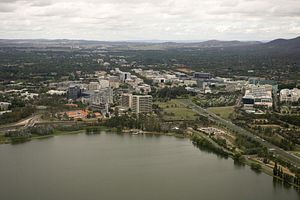Australia is going backwards. That is the unmistakable message of the latest Bertelsmann Stiftung’s Sustainable Governance Indicators (SGI) report on the land Down Under. When it comes to GDP, the budget, the environment, health, education and welfare, to name only a few areas, things are getting worse, not better. “On the SGI metrics, policy performance deteriorated over the review period,” the report says. “There is also considerable scope for improvement in governance.” And when it comes to meeting the United Nation’s Sustainable Development Goals (SDGs) Australia ranks only 18th out of all 34 OECD countries.
It is tempting to blame this on Tony Abbott, the recently deposed prime minister, who tried to implement an unexpected and unpopular set of sweeping cuts to social spending, and paid the price politically. But in fact the problems go far deeper than that.
As the SGI report sets out, Australian governments have for a long time been failing to improve the country’s governance, and in particular have struggled to provide a convincing plan for how they will navigate the future. “The main weakness of the country’s strategic planning is the absence of a vision for Australia’s economic development,” the report concludes. “After the resources boom the country is looking for policy options, but the government has not developed any.” In a sense, this is an advanced version of the classic ‘resources curse’, in which the apparent boom of having valuable primary resources to exploit becomes a hazard, because it encourages short-term thinking and spending splurges.
It is not the only problem Australia faces, of course. Successive federal governments have failed to find a way to work efficiently with their state counterparts. The latter, lacking significant revenue-raising power, sometimes get coerced into doing the federal government’s bidding, thus reducing their autonomy. Greater revenue-raising powers for the states may be part of the solution – though that is a step that English-speaking central governments around the world have been reluctant to take – whatever their political complexion.
Regardless, problems to do with the future do particularly plague Australia. It has a structural fiscal deficit – meaning that revenue doesn’t match spending over the standard business cycle – a problem that threatens the country’s long-term financial sustainability. Dealing with that will “inevitably” involve tough, future-focused revenue-raising measures, the SGI report says, including, potentially, a land tax. Meanwhile the country also needs a massive increase in public infrastructure spending to bring its inadequate roads, ports and railways up to the standards of other advanced economies.
Why is Australia struggling so much to grapple with long-term issues?
Partly, this is to do with the difficulty of getting agreement across central and state governments and a concentration of media power that impedes informed and pluralistic debate. Moreover, like its near neighbor New Zealand, Australia is famed for its practical, pragmatic, no-fuss approach to life.
That has its strengths: protocol and tradition don’t get in the way of new ideas; on a day-to-day level, things operate smoothly; there is a friendliness and openness (at least on some matters) that many find attractive. The downside is that this is an inherently short-term approach focused on smoothing away present problems. It doesn’t really give people the tools to deal with the future. Grappling with complex long-term issues is much harder, and liable to cause the conflict and fuss that Antipodeans often seek to avoid.
Linked to that is the issue of trust. Australia’s economy has been strongly influenced by its recent mining boom; it is also an export-oriented country and has very large foreign debts, mostly through household borrowing. This leaves it “heavily exposed to external risk”. The logical response, as the SGI report suggests, would be to establish a stabilization fund “similar to those implemented by other resource-rich economies”. Norway, for instance, pours the revenue from its oil fields into a sovereign wealth fund worth US$800 billion last year, effectively earmarking it for the future rather than spending it now.
The key to that decision, according to Norwegians, is trust. In August last year, Prof Alexander Cappelen, from the NHH Norwegian School of Economics, told the BBC: “For this kind of system to work, you need to have an enormous level of trust. Trust that the money isn’t going to be mismanaged – that it’s not going to be spent in a way you don’t like.”
The problem for Australia is that, unlike in Norway, its trust in politicians is at a record low. In 2013, a survey found that just 27 percent of people felt that the federal government could be trusted “almost always” or “most of the time.” Nor is this likely to change any time soon. Following Abbott’s replacement with Malcolm Turnbull, Australia has had five different prime ministers in five years, if you include Kevin Rudd’s two separate stints in the job. This is hardly the sort of thing to inspire trust in politicians – or to provide a stable base from which to plan a better future.
Max Rashbrooke is a journalist and author working in Wellington, New Zealand, where he writes about politics, finance and social issues.

































